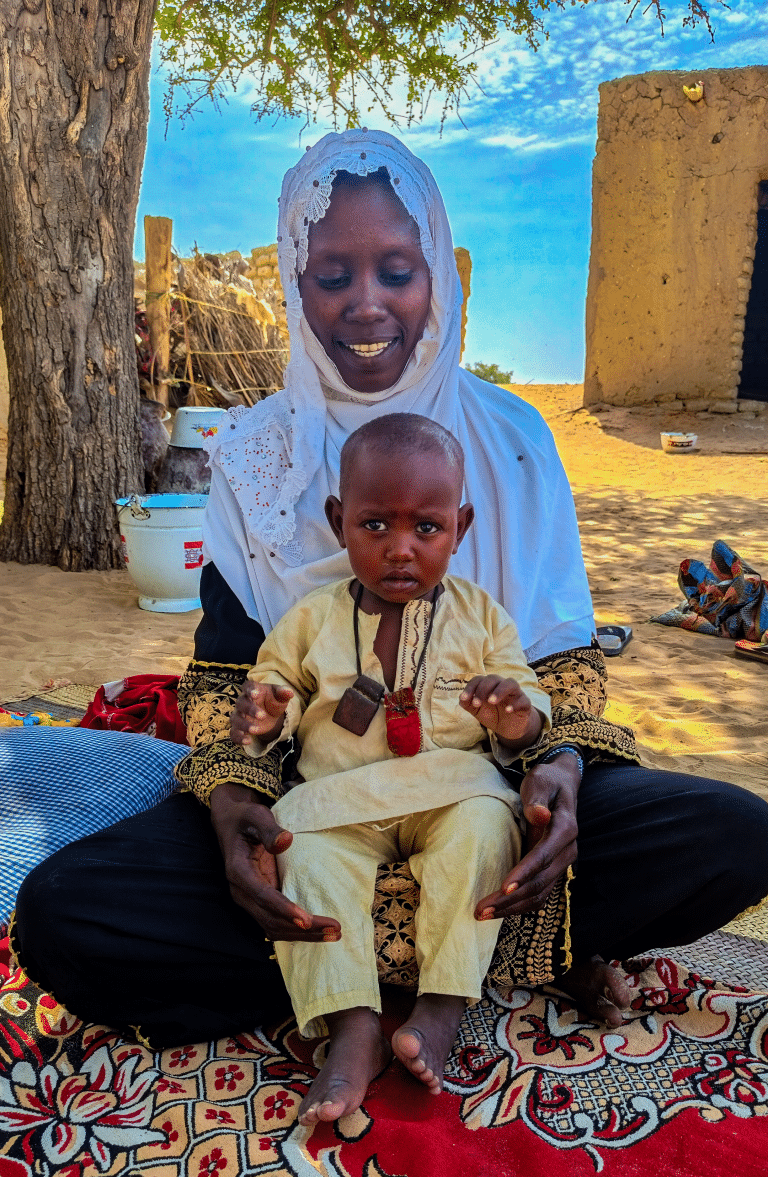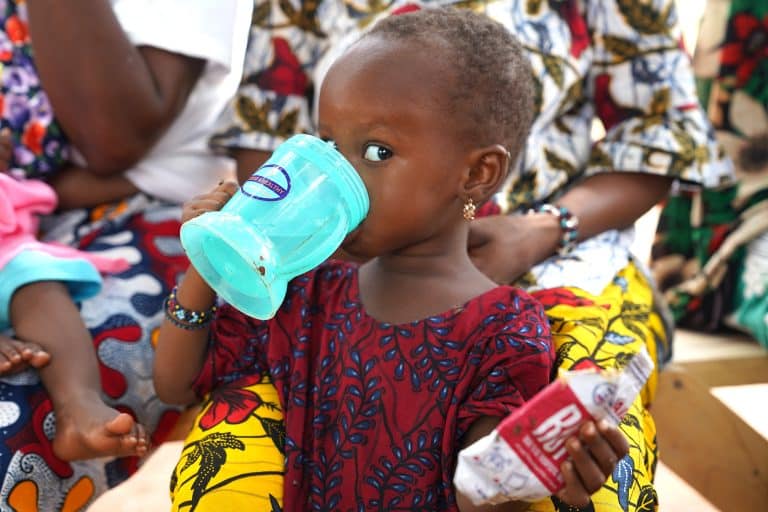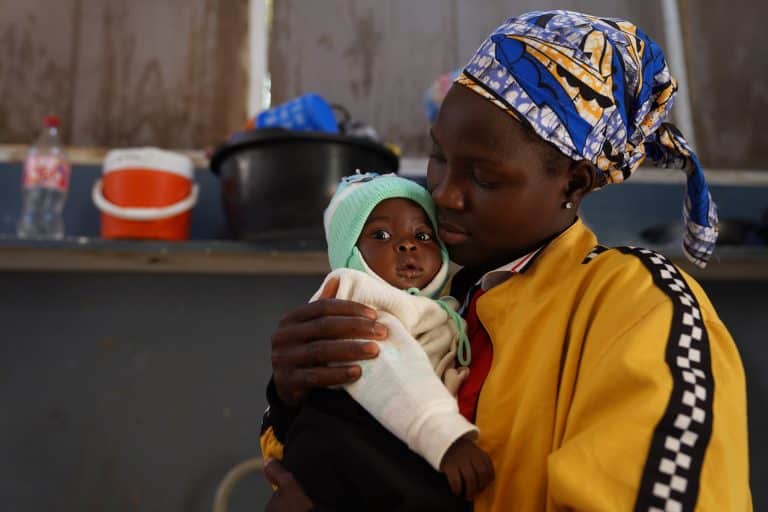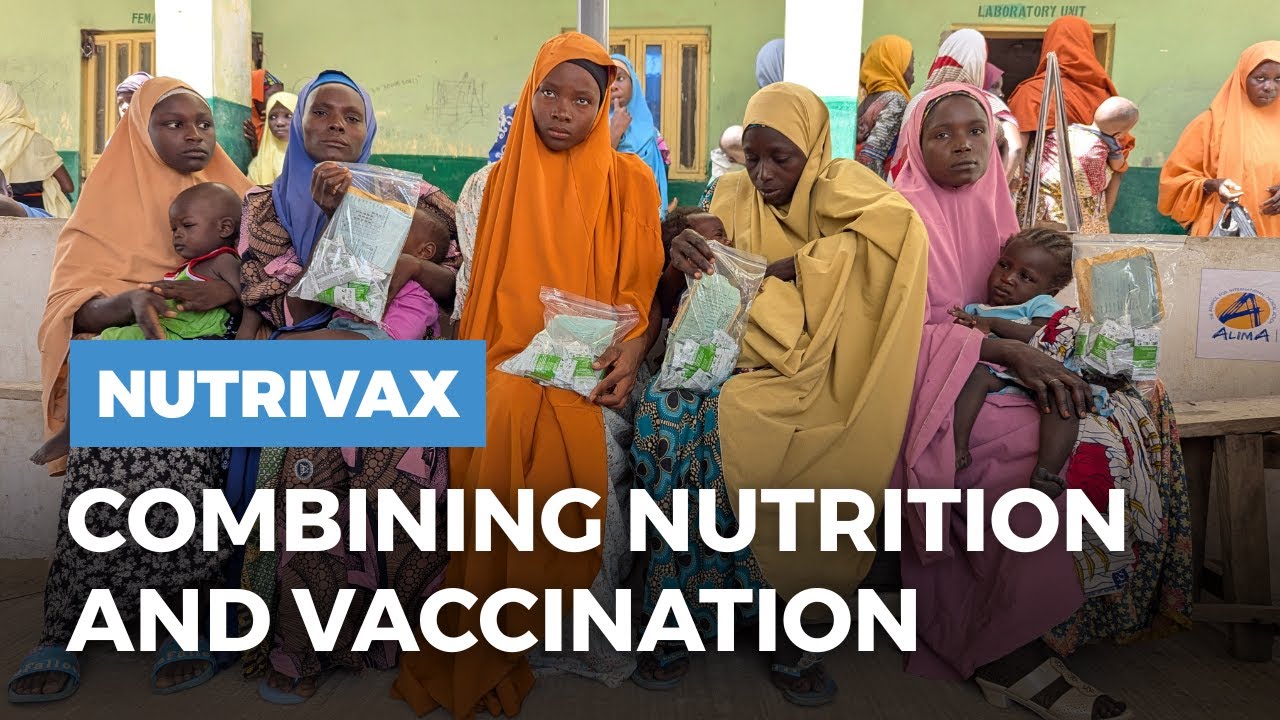
ALIMA, its research partners*, and the Yobe State Ministry of Health are conducting a pioneering clinical trial to explore whether linking nutrition support to vaccination could break this deadly cycle.
“We have been coming to ALIMA’s health center for immunization every month. We have been coming despite the distance from where we live. Sometimes it is too difficult to come so I stopped coming.”
She admits it was not the best decision. “When I stopped bringing my daughter for vaccination I noticed other children playing, but my daughter had no energy. That is why we came back and resumed collecting the peanut paste [SQ-LNS], combined with the vaccination they give us” Maimuna decided to resume the visits and today she is proud: her daughter Hauwa is full of energy, running around the neighborhood.
“In the past I was not consistent with vaccination, I did not know its benefits. Now that I am consistent, I know its value very well.”
From field observation to scientific study incentivizing families for vaccination while preventing malnutrition, an idea born in the field
At the heart of this approach is SQ-LNS — a small white-and-green sachet filled with nutrient-rich lipid paste that helps prevent malnutrition.
“In the course of our distribution activities of SQ-LNS in Cameroon, we realized there was a spontaneous increase in the number of children that turned out for routine immunization,” says Dr. Irine Atanga, Medical Referent for ALIMA in Yobe, remembering her previous humanitarian mission in Cameroon. “This brought about the research question ‘could incentivizing SQ-LNS simultaneously reduce deadly forms of malnutrition in children while improving vaccine coverage in the community?’”
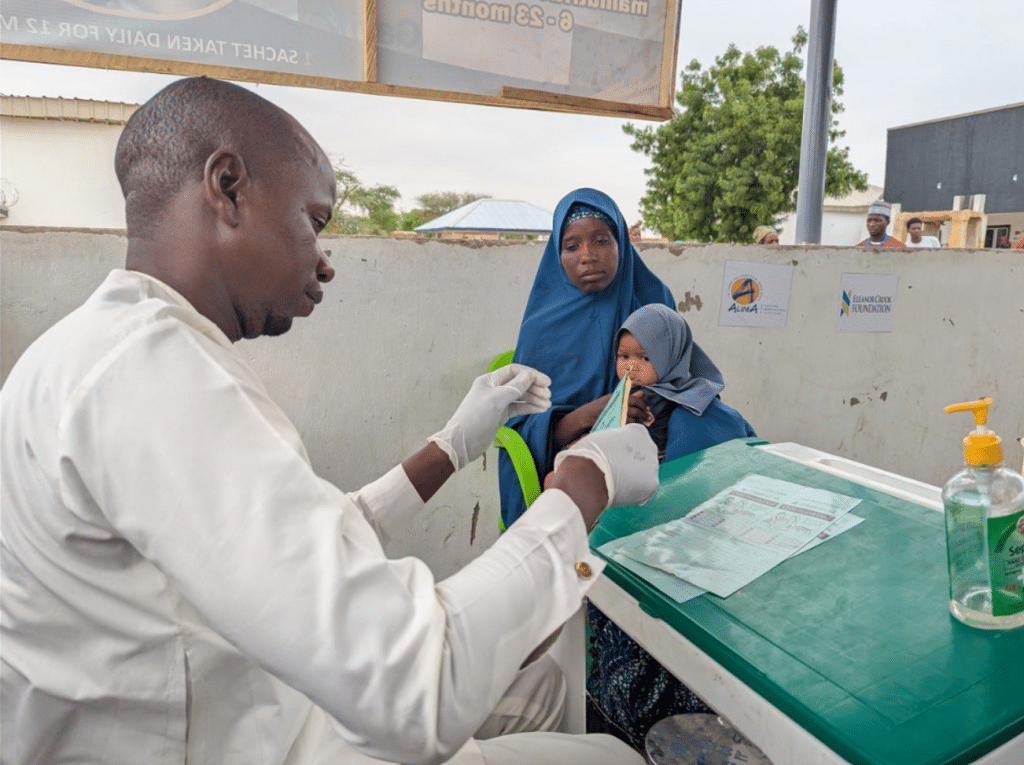
ALIMA decided to find out. Humanitarians and researchers from ALIMA and Inserm, in partnership with the Ministry of Health, launched a cluster randomized control trial in April 2024 across two local government areas of Yobe State.
A strategy with the power to transform child health
“Malnutrition is very common here — about 40% of the children arrive in facilities with Severe Acute Malnutrition and a substantial proportion of them do not have any form of vaccination”, explains Dr. Baba Goni, Chief Medical Director of the Yobe State University Teaching Hospital, also Co-Principal Investigator of NutriVax.
“Anything that will bring about the motivation of our people to bring their children for vaccination is in line with the policy objective of the Yobe State Ministry of Health, as well as the state government also”, he insists. “We want to know how people could be encouraged to bring their children for vaccination. This is a very key intervention.”
Health centers are randomly divided into two groups.
- Control group: families receive standard health messages around vaccinations and infant and young child feeding.
- Intervention group: in addition to these messages, children aged 6-23 months were eligible to receive monthly SQ-LNS sachets for up to 12 months.
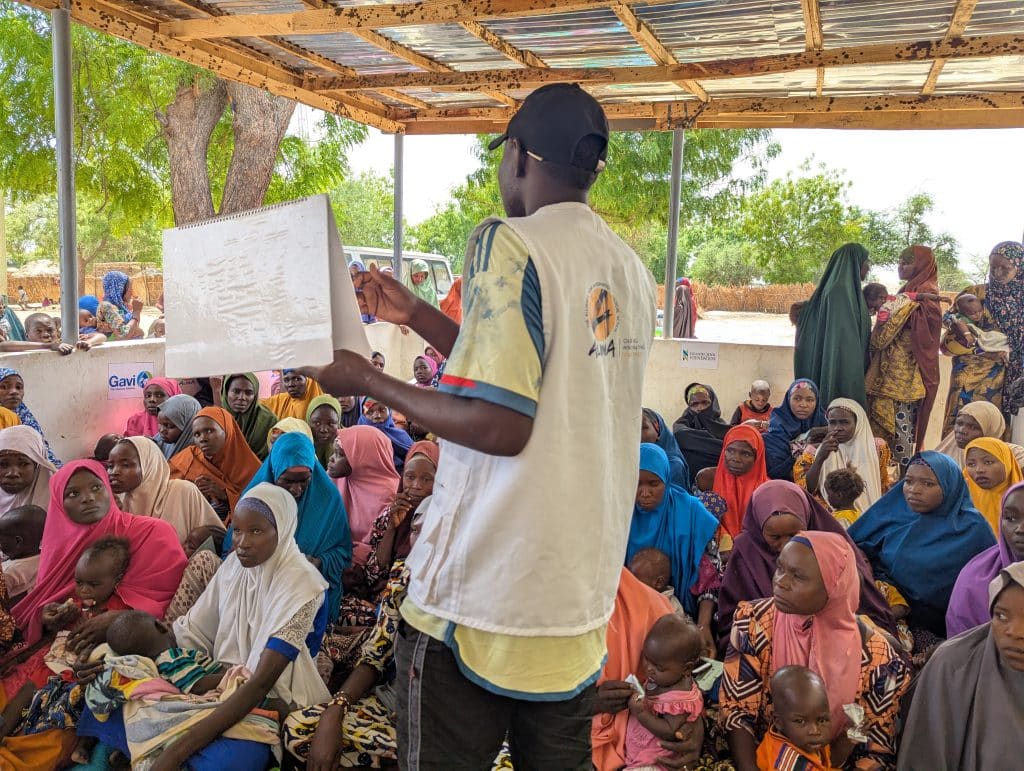
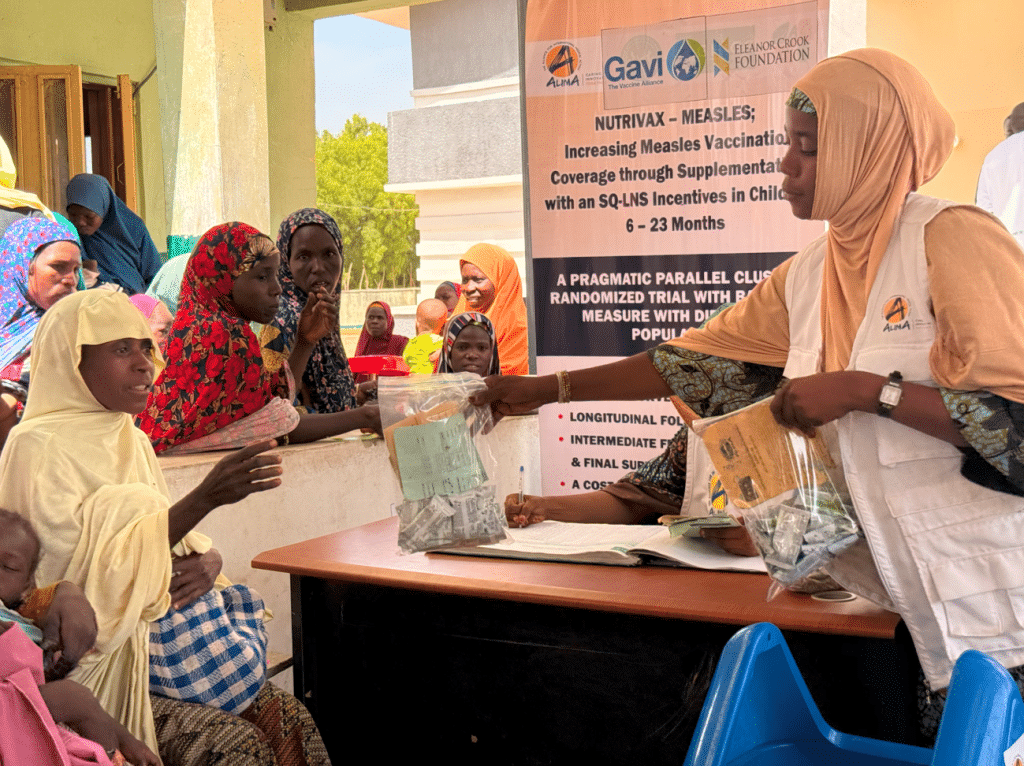
Vaccination coverage was measured before SQ-LNS distributions began to establish a baseline, and was measured again at the end of the trial to see if SQ-LNS boosted vaccination coverage — while also preventing malnutrition.
“SQ-LNS distribution is done on the same day as routine immunization,” explains Dr. Irine Atanga. “For the mothers, SQ-LNS motivates them to come to the facility for routine immunization. For children, they have a double impact: firstly, SQ-LNS drastically reduces their chances of developing deadly forms of malnutrition. Meanwhile, they equally benefit from a full vaccine coverage for all the antigens that prevent them from having vaccine preventable diseases like measles, polio, and all the others.”
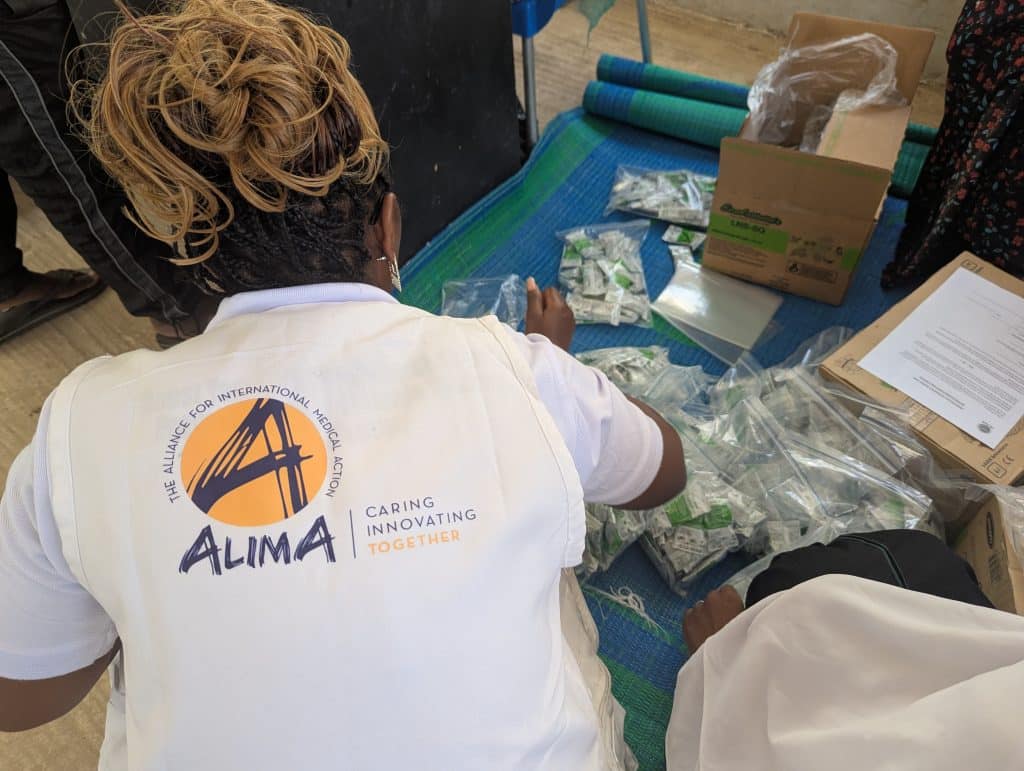
In just one year, nearly 20 000 children have received SQ-LNS through this study.
Results are expected by the end of 2025 — and could reshape how we protect children in regions where high rates of malnutrition and low immunization coverage form a deadly combination.
* The NutriVax trial is being conducted in partnership with Inserm, the University of Bordeaux, and the French National Research Institute for Sustainable Development (IRD), as well as the Yobe State Ministry of Health.
Activities on the Nutrivax project are made possible by funding from Gavi, the vaccine alliance, and the Eleanor Crook Foundation (ECF).


